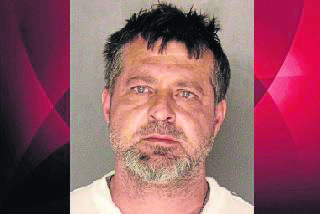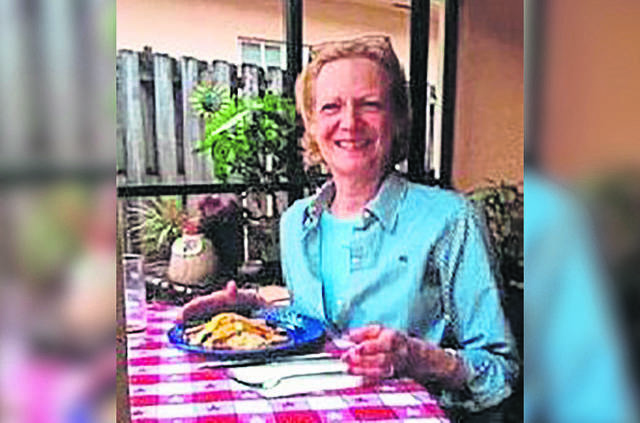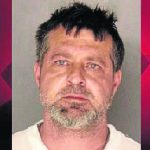For nearly an hour, Allegheny County homicide detectives pleaded with Douglas Berry to tell them where the body was.
It had been 25 days since 67-year-old Elizabeth “Betsy” Wiesenfeld had gone missing, and weeks of investigation had pointed the detectives directly at Berry, a handyman who had worked for her.
Video from Wiesenfeld’s Whitehall neighborhood showed Berry’s distinctive pickup truck in her driveway on the morning she went missing, the investigators told him.
They found her debit card — albeit burned — at Berry’s house in Liberty.
Her blood was found in his truck, police said.
All the evidence, they said, pointed to him.
“Whatever happened that morning was a tragedy for you and for her,” said homicide Det. Kevin McKool during the May 24, 2019, interrogation. “What we’d like is for something good to come out of that tragedy. To give her family the peace to know where she is.”
“I wish I could help out,” Berry responded.
The video recording of the interview, the subject of a defense suppression motion, was played Friday before Allegheny County Common Pleas Judge Alexander P. Bicket.
Defense attorney Heath Leff argued that the detectives should never have questioned his client that day. Three weeks earlier, during an interview on a separate gun case, Berry had invoked his right to an attorney, Leff said.
Deputy District Attorney Kevin Chernosky argued that Berry, 49, understood his Miranda rights and agreed to talk to the detectives.
Bicket said he was inclined to deny the defense motion but would reserve judgment until after reading the case law and transcript of the interview.
Although the recording itself does not contain much — if anything — in the way of incriminating information, it showed the desperation investigators were feeling at the time to try to find Wiesenfeld’s body.
The Whitehall woman was reported missing on April 30, 2019.
Her daughter, who exchanged text messages with her that morning, received a message at 11:11 a.m. that caused her alarm.
It said: “I met someone we’re leaving now for about a week look after everything at the house please I’m going to have a good time for once,” according to the criminal complaint.
Wiesenfeld hadn’t shown up for work. At 12:04 p.m., her daughter asked the police to check on her. She met officers at her mom’s home on East Barlind Drive, and they found evidence there.
Berry, who had done construction work for Wiesenfeld from 2015 to 2018 on rental properties that she owned, quickly became a suspect.
He was initially charged with a firearms violation — discovered while detectives investigated Wiesenfeld’s disappearance.
During an interview on that charge, on May 2, 2019, Berry asserted his right to have an attorney present. Once he did, detectives immediately stopped questioning him. He was taken to the Allegheny County Jail for processing.
But, on the morning of May 24, 2019, detectives picked Berry up from the jail and returned him to headquarters to question him on the Wiesenfeld case.
Detectives Patrick Kinavey and McKool gave Berry a soda and a cigarette and then laid out the evidence they’d collected in the case.
Once he heard the summary, Berry said, “You’re saying that she’s … dead?”
“What do you think?” McCool asked. “It’s been three-and-a-half weeks.”
“I’m not saying that at all,” Berry responded. “I’m confused as anything.
“I had nothing to do with it. I have no connection to this thing at all.”
For nearly an hour, the conversation went round and round. Detectives repeatedly asked Berry why he was at Wiesenfeld’s house the morning she went missing.
He never did give a clear answer, repeatedly saying that he did not recall.
“There’s nothing I can help you with. I’m sorry,” Berry said. “I like the family a lot.”
Several times, the detectives told Berry he could help himself.
“We want you to help yourself,” Kinavey said.
McKool later said Berry could save himself.
“If you take us to her, things might be different,” Kinavey said. “Take us to her, Doug.”
“Tell us where you took her,” McKool said. “Where is she?”
Later, the detective continued, “Where is she? Please.”
Kinavey told Berry he would feel better if he admitted where Wiesenfeld’s body was — telling him it would lift the burden he felt.
Berry said he felt no burden.
“For once in my life, I didn’t do no wrong,” he answered. “She’s a nice woman.”
The pleading became more intense as the interview neared its end.
“We need your help,” McKool said. “Tell us where she is, please. Just say the words. Just say where she’s at, please.”
It was then, nearly 50 minutes in, that Berry mentioned his attorney’s name. He asked if Leff was at the station and whether he was aware of all the evidence they’d told him about.
“This is a one-time offer,” Kinavey said.
“Where is she? Doug, where is she?” McKool asked.
Berry said he needed his attorney.
The interview stopped.
Months later, despite not having a body, the Allegheny County District Attorney’s Office filed a homicide charge against Berry.
Wiesenfeld’s remains were later found in April 2020, in Plum in an area known for illegal dumping. Her body was inside a garbage bag, and was spotted when a shoe popped through a tear.
At the conclusion of Friday’s hearing, Leff argued that throughout Berry’s interview, the detectives offered him promises of leniency through coercion.
“You get a feel for the emotion in the room,” he said. “You can almost feel the power imbalance.
“They shouldn’t have tried to re-interrogate him.”
Each time a detective told Berry to help himself, Leff said, was another example of coercion.
“They can’t keep trying after somebody says, ‘I want an attorney.’ ”
But Chernosky said that when Berry asked for an attorney on May 24, the questioning stopped. As for the interview 22 days earlier, Berry’s assertion of his rights at that time on that gun case are a separate matter.
“This is an interview on a completely different case,” the prosecutor said.
“ ‘Do you want to talk to us?’ He says, ‘yes.’ ”
Further, Chernosky said, Berry was well aware of his Miranda rights because he’d been arrested at least 12 times since 1990.











